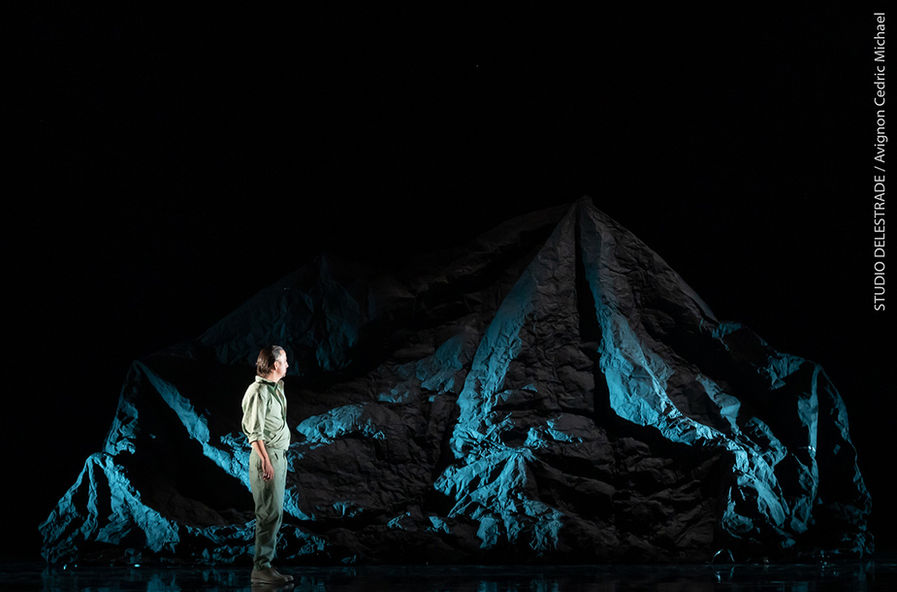
Simon, twenty-five, suffers from androgenetic alopecia (baldness). The fall of his hair is an existential fall as well. Recluse, he finds solace in literature and online forums, where other young alopecia sufferers vent their own distress.But his existence will be shaken by a most symbolic discovery: he was conceived out of a donation. Neither his mother nor himself know the identity of his biological father. He is the “Son of Mankind”. Gathering a small entourage, he intuitively feels that something is “expressing” itself through him, and that the ill he is afflicted with is but one of the many facets of a growing climate change. Growing conscious of a parallel between deforestation and baldness, he foresees he must accomplish an extraordinary feat for him make sense out of his chaos.Meanwhile, he will meet M.M, who will become his favorite disciple, and will encourage him upon the narrow path ahead of him: becoming the Bald People’s Messiah, whose mission will be to reforest the human soul as well as the planet.There remains to find how to address mankind to call its people to rebellion. A providential United Nations summit with global stakes will give him just this opportunity. At first, only a few followers join Simon, but gradually a massive crowd comes from everywhere.At United Nations, Simon and his followers become conscious of the system’s immobility: unanimity is needed amongst voters in order to pass legislation, and everybody strives to find Byzantine complications. Requests are made to move a comma, change one word, etc.Still, Simon manages to speak to the President of United Nations, who then begins to understand what is at stake: the parallel between a planet plagued by deforestation and the heads of men plagued by alopecia comes to light. But one of the disciples holds a more radical vision of the action needing to be undertaken, and plots with Security. As Simon comes closer to the President to shake his hand, he is shot by his security detail.Is a casualty needed in order to save the planet? The epic of a rebel at the confines of his utopian ideas: whoever succeeds is a genius, whoever fails is a madman.

SEE THE INTERVIEW

Interview d'Eric Breton sur son opéra en préparation
SEE THE BALD PEOPLE'S MESSIAH
Opéra du Grand Avignon, 20 novembre 2020
© Sébastien Cotterot - AMDA Production
SOME PICTURES OF THE BALD PEOPLE'S MESSIAH
Opéra du Grand Avignon, 20 novembre 2020
© Studio Delestrade - Avignon
WHAT THE PRESS SAYS
"The music composed by Éric Breton deploys an immense array of colors: notably those of the great 20th century french composers. The score travels the sound spectrum going from a delicate tone soloist line to immense engulfing masses."
Olyrix - read the full article (in French)
"Éric Breton possesses undeniable ease for composing a score which is pleasant to listen to, devoid of atonality, and offers marked contrast between scenes."
Anaclase - read the full article (in French)
"The libretto's ecological reach, remarquably adapted by Eric Breton is manifest yet the spiritual allusions, which are numerous, make it a work with an even broader mysterious dimension."
Lyrica Massilia - read the full article (in French)
"The score is efficient, rich and colorful, the rythm molding to the outline and intrigue of the libretto."
Lyrica Massilia - read the full article (in French)
"As for the messianic dimension of the work, which perhaps eludes a 21rst century nothing short of spiritual, it follows a christic vision, cultural if not religious. "
Classic en Provence - read the full article (in French)
"The music of Eric Breton is melodious. It seems to feed from diverse influences, ranging from Debussy to Puccini, including musicals. It is perfectly in tune with the assessments and claims of this realist tale's character."
Toute la Culture - read the full article (in french)
"The music....is sometimes reminiscent of Debussy, Poulenc, or even Bernstein and seeks to move rather than astonish."
Opéra-Magazine - read the full article (in French)
"A score more indwelt by inner questionning than by urgency."
Opéra-Magazine - read the full article (in French)

























